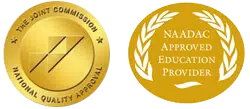Up until this point, most of the steps, in the 12-Step Recovery Program, have focused solely on broadening your viewpoint, coming to terms with your shortcomings, and acknowledging that you’ve lost control of your substance use disorder. You spend time discussing your shortcomings in-depth and ask those you trust to help you rid them from your life to clear the path to a lifelong recovery journey. The past seven steps have been crucial for personal growth so you should feel accomplished and stronger than ever at this point in your journey. Take a moment to acknowledge your successes so far. You understand the road ahead won’t be sunshine and rainbows, but you accept that it will be traveled fully sober. Step 8 kicks it up a bit by involving others in your journey. During Step 8 we, “make a list of all persons we have harmed and become willing to make amends to them all.”
What does Step 8 accomplish?
The main goal of Step 8 is to gain a level of inner peace that can only be brought forth when you make amends with people you have hurt in the past. Understanding that the harm you caused was, in part, due to your addiction, is important to moving forward with the tough conversations that you may face during this step. Through the last seven steps, you’ve gained a sense of purpose for your life path and built up your confidence and courage to handle tough situations. During Step 8, you are given the opportunity to make amends with those you’ve harmed by connecting with those matured inner emotions and showing them how much you’ve changed for the better.
How can we possibly approach those that we’ve harmed in the past to renew relationships?
The first part of Step 8 to compile a list of people that you feel the need to make amends based on harmful interactions in the past. To accompany each person on that list, you must acknowledge what damage you’ve caused them and how it is currently affecting their way of life. It is important to consider all of the ways, big and small, that you’ve negatively impacted the people on your list. With the courage and new-found confidence that you’ve gained through steps one to seven, you are able to approach uncomfortable situations with an open mind and open heart.
What are some tips to remember when navigating Step 8?
- Understand that fear and doubt may pop up in your feelings when navigating through this step. This is completely normal and can be handled through coping mechanisms that you’ve previously established. Breathe! It sounds simple but is often forgotten in difficult situations. Allow yourself to find peace and calm before, during, and after each discussion or meeting.
- Don’t try to create a list in your head. Successful completion of this step requires writing down each name and instance you need to touch upon. You may find it helpful to use a notebook and create one page per person so that you can go back and write notes about your meeting afterward.
- Accept that you cannot make amends with every single person you’ve hurt right now. When creating your list mark off who you can make amends with now, who you can make partial amends with now and a more extensive amends with later, and then those who you may never be able to contact.
- Once you’ve completed your list, review it with your sponsor, mentor or therapist to ensure you are touching on all bases necessary to adequately complete this step.
- Include yourself on your list. Admitting that we’ve harmed ourselves due to substance use is an important step in the healing process and just as important as making amends with others.
If you had to describe Step 8 in one word what would it be?
Renewal. This step may be considered one of the hardest in the process based on the requirement to interact with those you’ve harmed through difficult, but renewing conversations. Once you’ve had those conversations, no matter the outcome, you will feel relief and renewal in your life. You are clearing the road ahead of you and removing all past downfalls to make room for glorious sober accomplishments.
To learn more about the 12-Step Recovery Program or to seek change in your life or the life of someone you know battling the throes of addiction contact us today.
Baystate Recovery Center, a clinically Infused 12-Step Treatment Center for Drug and Alcohol Addiction, was founded by two partners in addiction treatment services, John Checchi and Michael Wilson.



